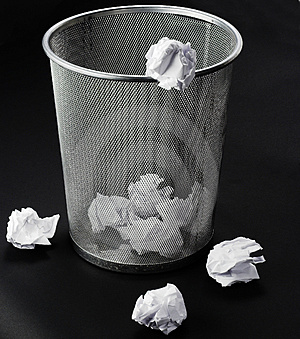 When Book Club Girl, a site “dedicated to sharing great books, news and tips with book club girls everywhere,” asked me to write a guest post, I knew exactly what I wanted to talk about. For over a decade I’ve belonged to a wonderful group of book lovers in Montclair, NJ, where I live, and several years ago I became part of very different reading group of writers in New York. As I write in the post, “My two book clubs serve entirely different purposes. The Montclair group provides a way to stay in touch with a circle of friends and read current books … And the writers’ group is equivalent to a welders’ convention – a place to exchange ideas about our trade.” And they’re equally useful to me as a writer and reader. You can read the rest of the post here.
When Book Club Girl, a site “dedicated to sharing great books, news and tips with book club girls everywhere,” asked me to write a guest post, I knew exactly what I wanted to talk about. For over a decade I’ve belonged to a wonderful group of book lovers in Montclair, NJ, where I live, and several years ago I became part of very different reading group of writers in New York. As I write in the post, “My two book clubs serve entirely different purposes. The Montclair group provides a way to stay in touch with a circle of friends and read current books … And the writers’ group is equivalent to a welders’ convention – a place to exchange ideas about our trade.” And they’re equally useful to me as a writer and reader. You can read the rest of the post here.
Thirteen Tips for Actually Getting Some Writing Done
 Gretchen Rubin is the guru behind the phenomenally successful blog (and soon-to-be book) The Happiness Project. In this post she shares an inside glimpse at her process.
Gretchen Rubin is the guru behind the phenomenally successful blog (and soon-to-be book) The Happiness Project. In this post she shares an inside glimpse at her process.
One of the challenges of writing is … writing. Here are some tips that I’ve found most useful for myself, for actually getting words onto the page.
1. Write something every work-day, and preferably, every day; don’t wait for inspiration to strike. Staying inside a project keeps you engaged, keeps your mind working, and keeps ideas flowing. Also, perhaps surprisingly, it’s often easier to do something almost every day than to do it three times a week. (This may be related to the abstainer/moderator split.)
2. Remember that if you have even just fifteen minutes, you can get something done. Don’t mislead yourself, as I did for several years, with thoughts like, “If I don’t have three or four hours clear, there’s no point in starting.”
3. Don’t binge on writing. Staying up all night, not leaving your house for days, abandoning all other priorities in your life — these habits lead to burn-out.
4. If you have trouble re-entering a project, stop working in mid-thought — even mid-sentence — so it’s easy to dive back in later.
5. Don’t get distracted by how much you are or aren’t getting done. I put myself in jail.
6. Don’t fall into the trap of thinking that creativity descends on you at random. Creative thinking comes most easily when you’re writing regularly and frequently, when you’re constantly thinking about your project.
7. Remember that lots of good ideas and great writing come during the revision stage. I’ve found, for myself, that I need to get a beginning, middle, and an end in place, and then the more creative and complex ideas begin to form. So I try not to be discouraged by first drafts.
8. Develop a method of keeping track of thoughts, ideas, articles, or anything that catches your attention. That keeps you from forgetting ideas that might turn out to be important, and also, combing through these materials helps stimulate your creativity. My catch-all document, where I store everything related to happiness that I don’t have another place for, is more than five hundred pages long. Some people use inspiration boards; others keep scrapbooks. Whatever works for you.
9. Pay attention to your physical comfort. Do you have a decent desk and chair? Are you cramped? Is the light too dim or too bright? Make a salute—if you feel relief when your hand is shading your eyes, your desk is too brightly lit. Check your body, too: lower your shoulders, make sure your tongue isn’t pressed against the top of your mouth, don’t sit in a contorted way. Being physically uncomfortable tires you out and makes work seem harder.
10. Try to eliminate interruptions — by other people, email, your phone, or poking around the Internet — but don’t tell yourself that you can only work with complete peace and quiet.
11. Over his writing desk, Franz Kafka had one word: “Wait.” My brilliantly creative friend Tad Low, however, keeps a different word on his desk: “Now.” Both pieces of advice are good.
12. If you’re stuck, try going for a walk and reading a really good book. Virginia Woolf noted to herself: “The way to rock oneself back into writing is this. First gentle exercise in the air. Second the reading of good literature. It is a mistake to think that literature can be produced from the raw.”
13. At least in my experience, the most important tip for getting writing done? Have something to say! This sounds obvious, but it’s a lot easier to write when you’re trying to tell a story, explain an idea, convey an impression, give a review, or whatever. If you’re having trouble writing, forget about the writing and focus on what you want to communicate. For example, I remember flailing desperately as I tried to write my college and law-school application essays. It was horrible – until in both cases I realized I had something I really wanted to say. Then the writing came easily, and those two essays are among my favorites of things I’ve ever written.
Everything is Material
 When I’m working on a novel, everything is material …
When I’m working on a novel, everything is material …
It’s Back-to-School night, an annual ritual I must repeat three times this year in three different schools. (Bad planning, those birth dates.) High school, middle school, elementary, it’s all the same: green-tinted fluorescents buzzing faintly overhead, the slight whiff of disinfectant, at least one nervous teacher with a fistful of bullet points, several dozing parents.
Yet despite the surface sameness, each endless evening is endless in its own way. So I look around, and I pull out my writing pad. I note a bead of sweat on the new vice-principal’s brow. The inspirational bromides of the athletic director (and the whistle he wears around his neck, even in front of parents at 8 pm). The Julia Child-like guffaw of a frizzy haired bio teacher. (Did I just glimpse a flirtatious glance between the band leader and the pianist? Maybe not. But his wife is watching him like a hawk.)
And then there are the parents. Tired and bedraggled, restless and impatient, alert and engaged. Some, like me, are taking notes. (Other writers? No, probably just better parents than I’ll ever be, legitimately interested in keeping A days and B days straight.) Directly in front of me, a group of women wearing running shoes and windbreakers, all with similar gray-streaked layered haircuts, cluster together; across the room, a tall blonde MILF in a low-cut purple dress bites her frosted lower lip; half a dozen dads in suits surreptitiously check their I-Phones and Blackberries. Stay-at-home moms in tennis bracelets (and some in tennis whites) contrast with working moms in tailored dresses carrying stylish totes. Latecomers of all stripes stand wearily against the back wall.
Time flies, and before I know it I’m back in the parking lot with a page full of characters and an idea for a scene. See, that wasn’t so bad, was it?
Quick Link: “Women on Writing” Q&A
 Women on Writing – or WOW! – is a buzzing hive of activity for, by, and about women writers and readers. In a freewheeling interview with Margo Dill, a WOW columnist and contributing editor, I talk about why I keep a blog, why I write first drafts on a legal pad with an old-fashioned micro-point Uniball pen, why I get bored when authors simply read their work aloud, why I don’t feel guilty about not being a morning person, and what I know is true (to paraphrase Oprah, and why not?) about being a writer. You can find the interview here.
Women on Writing – or WOW! – is a buzzing hive of activity for, by, and about women writers and readers. In a freewheeling interview with Margo Dill, a WOW columnist and contributing editor, I talk about why I keep a blog, why I write first drafts on a legal pad with an old-fashioned micro-point Uniball pen, why I get bored when authors simply read their work aloud, why I don’t feel guilty about not being a morning person, and what I know is true (to paraphrase Oprah, and why not?) about being a writer. You can find the interview here.
Quick Link: Coffee With a Canine
 Recently I did an interview with Marshal Zeringue, a screenwriter who somehow manages to find the time to maintain three healthy blogs: The Campaign for the American Reader (“An Independent Initiative to Encourage More Readers to Read More Books”), Coffee with a Canine, and The Page 69 Test, which astute readers of this blog will recognize from an earlier posting. An excerpt of my recent conversation with Marshal – which includes earth-shattering revelations about how I write, where I work, my English Springer Spaniel, Lucy, and my favorite brand of coffee – is here, and if you can stand the cuteness, the entire interview is here. Woof!
Recently I did an interview with Marshal Zeringue, a screenwriter who somehow manages to find the time to maintain three healthy blogs: The Campaign for the American Reader (“An Independent Initiative to Encourage More Readers to Read More Books”), Coffee with a Canine, and The Page 69 Test, which astute readers of this blog will recognize from an earlier posting. An excerpt of my recent conversation with Marshal – which includes earth-shattering revelations about how I write, where I work, my English Springer Spaniel, Lucy, and my favorite brand of coffee – is here, and if you can stand the cuteness, the entire interview is here. Woof!
- « Previous Page
- 1
- …
- 17
- 18
- 19
- 20
- 21
- …
- 34
- Next Page »
